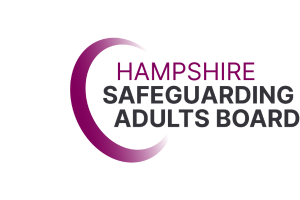Resources
Below are a number of links to websites, leaflets, action plans, national resources and research for professionals.
The Prevent Partnership Board is made up of a wide range of organisations across Hampshire whose remit is to oversee, coordinate and monitor Prevent work at the local level.
The Hampshire Prevent Partnership Board website provides information, guidance and resources for professionals working with children and their families where there may be concerns of possible radicalisation.
The Preventing terrorism and radicalisation within our communities leaflet explains what Prevent is, signs of possible radicalisation and how to report concerns.
The Hampshire County Council Prevent page provides information on how to report concerns.
The Hampshire Safeguarding Adult Board website provides a number of key documents to support professionals who are concerned about radicalisation and extremism:
Hampshire Safeguarding Adults Board | Working together to safeguard adults at risk
Care and support statutory guidance – GOV.UK
The Channel Duty Guidance: Protecting people vulnerable to being drawn into terrorism, issued under the Counter Terrorism and Security Act 2015, is specifically aimed at supporting members and partners of local panels involved in the Channel process.
Individuals referred to and supported through the Prevent Programme, April 2021 to March 2022 – GOV.UK, contains experimental statistics on individuals referred to and supported through the Prevent programme due to concerns they were vulnerable to a risk of radicalisation.
ACT Early | Prevent radicalisation provides advice and support to anyone that has concerns about themselves or a friend/family member.
Designed with KCSIE, Ofsted and the Prevent duty guidance in mind, the London Grid for Learning (LGfL) provides schools with up to date information on the Prevent Duty including training, resources for safeguarding teams, staff, parents and carers, and guidance on risk assessment, policy and cross-curricular content to build resilience to extremism and promote critical thinking.
Educate Against Hate provides government advice and trusted resources to help safeguard students from radicalisation, build resilience to all types of extremism and promote shared values.
The Department of Education guidance, Understanding and Identifying radicalisation risk in your education setting, provides additional information and guidance on understanding risk.
Individuals with an autism spectrum condition (ASC) are no more likely to commit a violent act in the name of a particular cause than any other individual. However, those with an ASC can be more vulnerable to a whole range of safeguarding concerns – including individuals and groups that seek to groom and recruit young people into extreme and potentially dangerous belief systems.
Developed by Crawley Borough Council and West Sussex County Council, this Parental Guidance Booklet and Toolkit provides information on safeguarding young people with autism spectrum conditions (ASC) from extremist ideologies.

